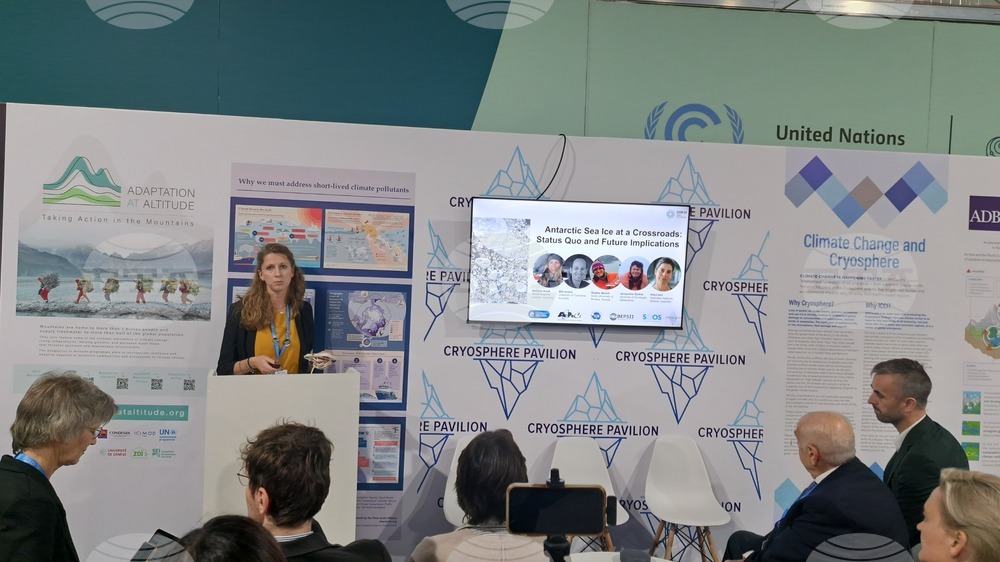site.btaAntarctic Sea Ice Melting Unusually Fast, Scientists Say at COP29


Antarctic sea ice has been melting unusually fast since 2016, international scientists said at COP29 here on Tuesday.
Antarctic ice is mainly driven by winds, sea currents and depends on water temperature, explained Prof. Dr Stefanie Arndt from the Alfred Wegener Institute in Germany. Antarctic ice can move great distances to cover huge areas in the Southern Ocean. By 2015-2016, Antarctic ice was showing large changes from year to year, but without long-term consequences for overall quantity and condition. After this period, the Southern Ocean ice began to suddenly and permanently disappear. The unusually strong negative anomaly occurs mainly in winter. The state of Antarctic sea ice affects the world's oceans, the researcher underscored.
Data from the Australian Observing System shows that as the planet warms, sea ice is declining, said Dr Will Hobbs from the University of Tasmania, Australia. He pointed out that analysis of the data and the models apparently missed some factors that affect Antarctic sea ice and contribute to its marked decline. Atmosphere is among the strongest influencing factors on Southern Ocean ice, he noted. However, models predict higher Antarctic ice levels than actual levels, meaning that the atmosphere is no longer the leading factor in Antarctic ice behaviour. At the same time, the data shows a significant rise in water temperature in the Southern Ocean, and this is clearly the cause of the melting sea ice.
The big question for scientists is where the heat in the sea water at the surface of the ocean is coming from, because that is key to understanding what is happening in the ocean and what is coming next, Hobbs said. One explanation is that the ocean has absorbed the sun's heat and this is having a long-term effect on the ice sheet. Ice reflects sunlight and the thinner it is, the more heat reaches the seawater. It warms and melts the sea ice. As the ice has thinned in recent years, it is possible that the water on the ocean surface is warming more and therefore the ice is melting faster, the researcher said.
Data on deep Southern Ocean water temperatures in the years since 2016 suggest that temperatures there are rising as well. However, the deep waters of the Southern Ocean have shown a warming trend since 2012. Scientists say it is the temperature of the deep waters that keeps sea ice from melting, but with the trend of rising temperatures, they are likely to contribute to ice melt long-term as well, Hobbs said.
Antarctic sea ice has been below long-term averages since 2016, with extremely low levels in recent summers and winters, recalled the International Cryosphere Climate Initiative, which organized the COP29 discussion in Baku. They dedicated their event to the abrupt change in the state of Antarctic ice, because the causes of the phenomenon are not entirely clear to scientists, and it remains to be seen what its long-term consequences will be.
/RY/
news.modal.header
news.modal.text